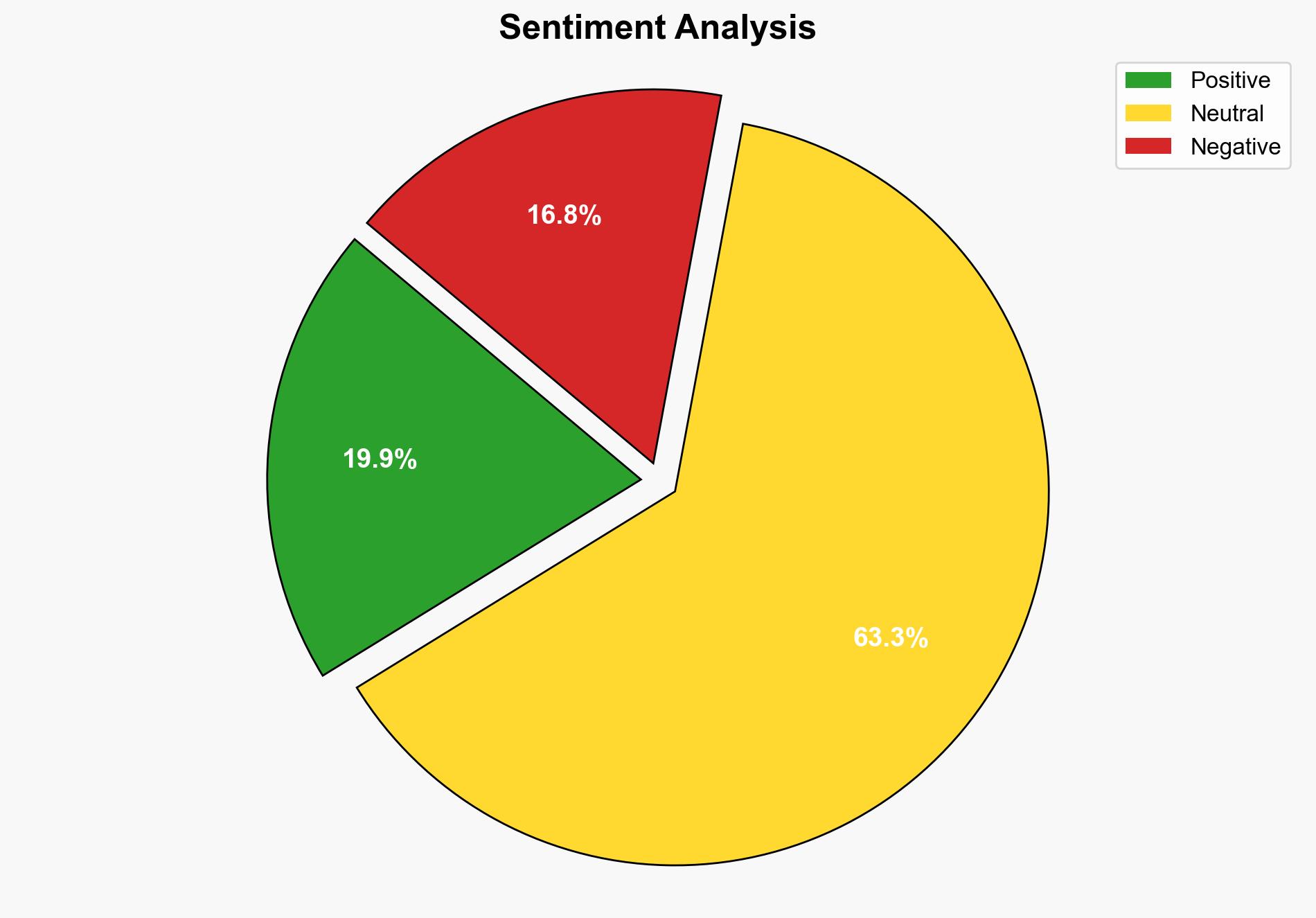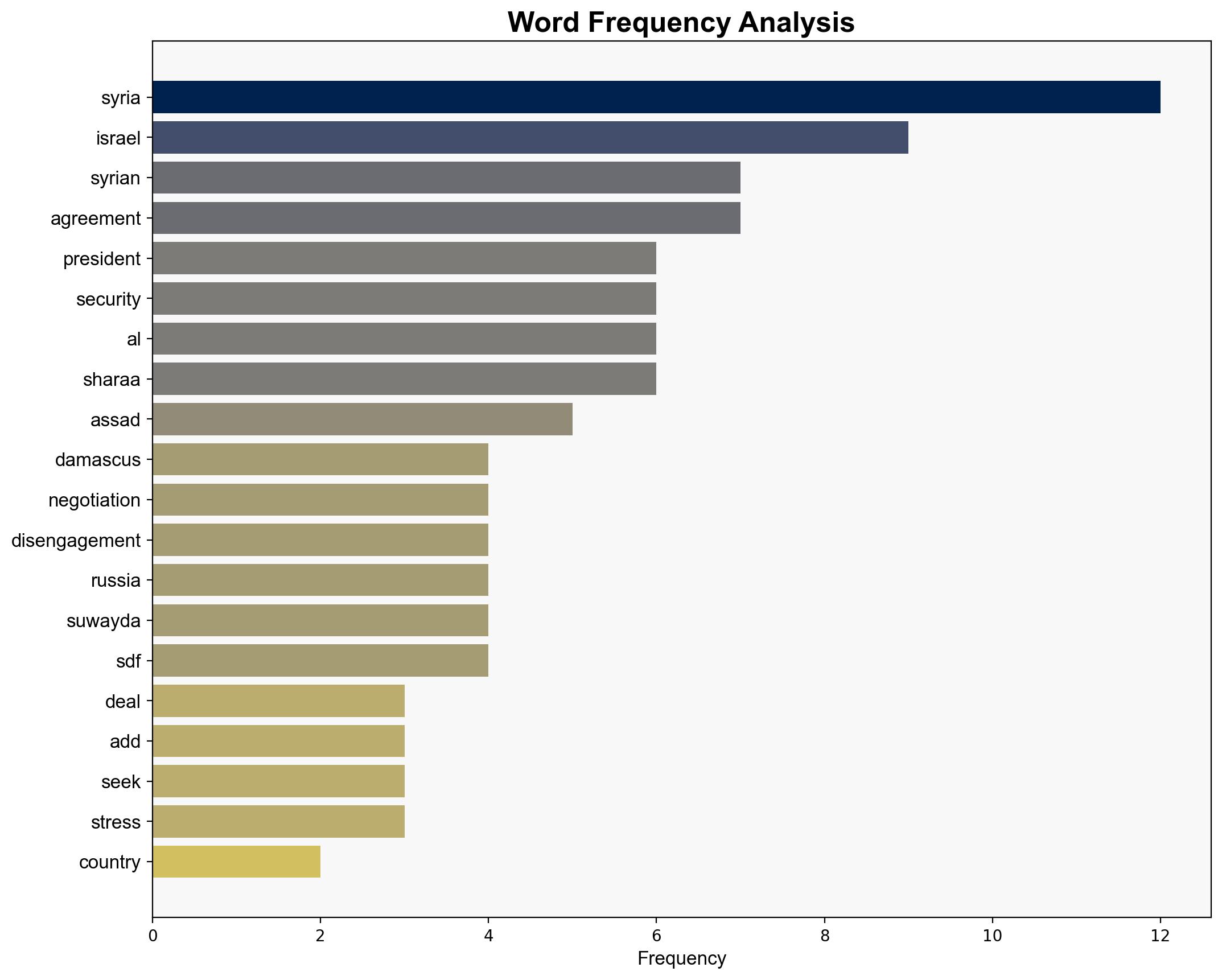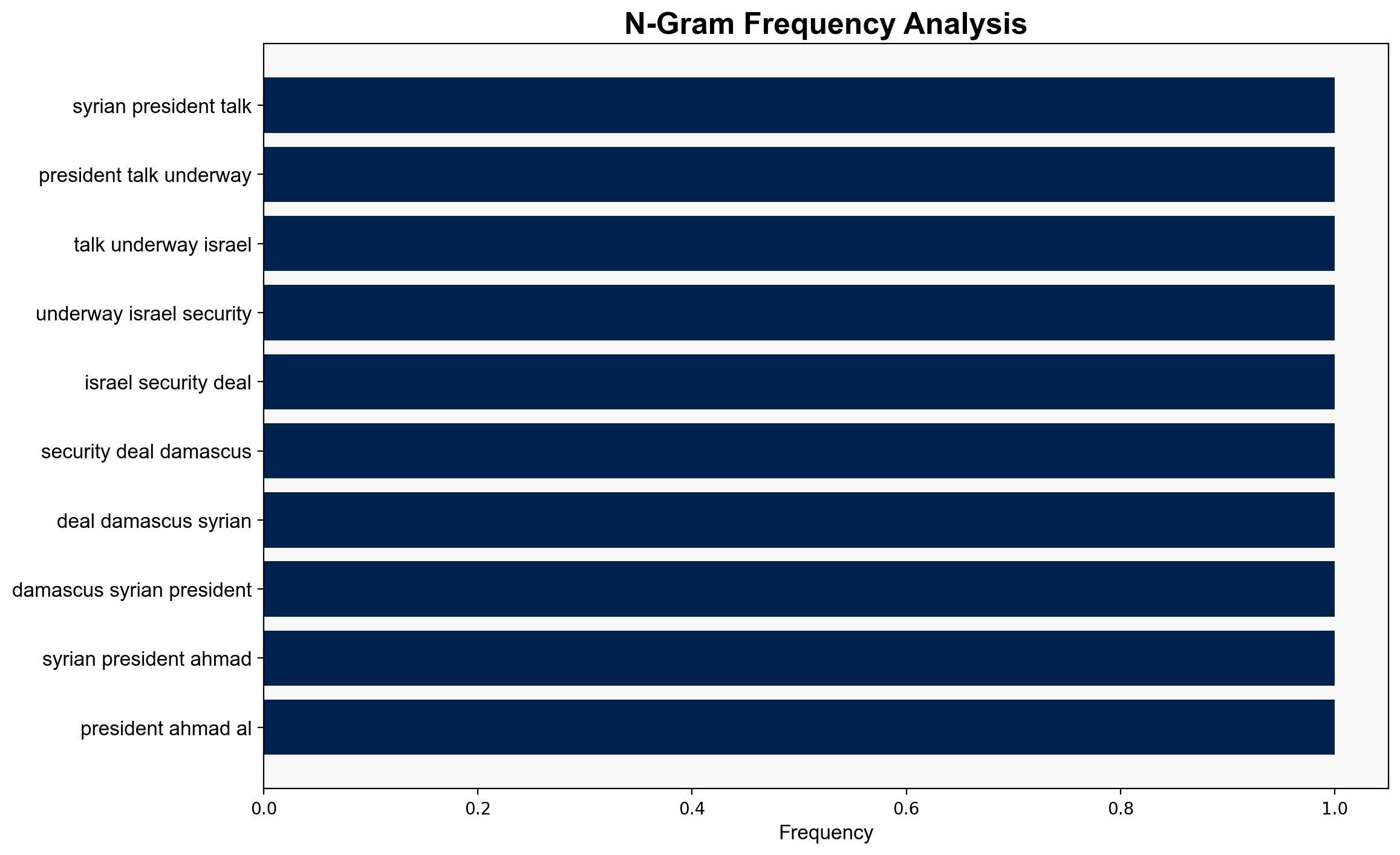Syrian president says talks underway with Israel on security deal – Hurriyet Daily News
Published on: 2025-09-13
Intelligence Report: Syrian president says talks underway with Israel on security deal – Hurriyet Daily News
1. BLUF (Bottom Line Up Front)
The most supported hypothesis is that Syria and Israel are engaging in negotiations to establish a security agreement aimed at reducing regional tensions and reviving previous accords. This is supported by the Syrian president’s statements and the historical context of disengagement agreements. Confidence level: Moderate. It is recommended to closely monitor the negotiations for shifts in regional alliances and potential impacts on broader geopolitical dynamics.
2. Competing Hypotheses
1. **Hypothesis A**: Syria and Israel are genuinely negotiating a security agreement to reduce tensions and revive previous disengagement frameworks. This is supported by explicit statements from the Syrian president and historical precedents of similar agreements.
2. **Hypothesis B**: The announcement of negotiations is a strategic deception by Syria to buy time and consolidate internal power, while simultaneously attempting to weaken Israel’s international standing by portraying it as an aggressor. This hypothesis considers the broader geopolitical context and Syria’s historical use of strategic communications.
Using ACH 2.0, Hypothesis A is better supported due to the explicit mention of negotiations and the historical context of disengagement agreements. However, Hypothesis B cannot be entirely dismissed due to the complex regional dynamics and Syria’s strategic interests.
3. Key Assumptions and Red Flags
– **Assumptions**: It is assumed that both parties are negotiating in good faith and that the Syrian president’s statements reflect actual policy intentions.
– **Red Flags**: The lack of corroborative statements from Israeli officials and the potential for misinterpretation of intentions. The historical volatility of the region and previous failed negotiations are also concerning.
– **Blind Spots**: Potential undisclosed third-party influences, such as Russia or Iran, which could alter the course of negotiations.
4. Implications and Strategic Risks
– **Geopolitical Risks**: A successful agreement could shift regional power dynamics, potentially isolating Iran and affecting Russian interests in Syria.
– **Economic Implications**: Stability in Syria could lead to economic recovery efforts, impacting regional trade and investment.
– **Escalation Scenarios**: Failure of negotiations could lead to increased military tensions, with potential for broader conflict involving regional and global powers.
5. Recommendations and Outlook
- Monitor official statements from both Syria and Israel for confirmation of negotiation progress.
- Engage with regional allies to assess their perspectives and potential impacts on their security policies.
- Scenario Projections:
- Best Case: Successful agreement leading to reduced tensions and regional stability.
- Worst Case: Breakdown in talks resulting in increased hostilities and regional destabilization.
- Most Likely: Prolonged negotiations with intermittent progress and setbacks.
6. Key Individuals and Entities
– Ahmad al-Sharaa (Syrian President)
– Bashar al-Assad
– Entities: Syrian Government, Israeli Government, United Nations Disengagement Observer Force
7. Thematic Tags
national security threats, geopolitical negotiations, regional stability, Middle East diplomacy





